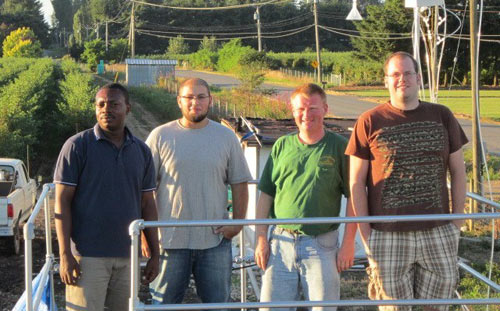|
BC CLEAR Projects 2012-2013 (funding start dates) > Influence of Sea Salt Aerosol Derived Chlorine on NOx and Ozone Budgets in the Lower Fraser Valley posted on 7:19 PM, July 6, 2016
Project Leader: Hans Osthoff
Researchers will focus on quantifying the nocturnal conversion of NOx to N2O5 and ClNO2 in the Lower Fraser Valley (LFV). This chemistry is currently not constrained by measurements, yet is potentially significant since all precursors (aerosol chloride, NOx, and O3) are abundant. The research team will quantify the mixing ratios of NOx, O3, N2O5, ClNO2 and other relevant species at a ground station at the Abbotsford airport during a two-week period in summer (the peak of O3 season) 2012. These measurements will be used to determine the importance of the nocturnal recycling of NOx via the N2O5 / ClNO2 pathway compared to the competing reactions of NO3 and N2O5 at this site. This knowledge is relevant for management of ozone (O3) as it will allow a more accurate description of NOx and odd oxygen (=O3+NO2) chemistry in models and will help guide air quality policy decisions. Efficient formation of ClNO2 in ambient air can have considerable influence on O3 production, especially during stagnation periods, as NOx and Ox formed during the preceding days are regenerated rather than being removed from the atmosphere. Aerosol chloride is needed to recycle NOx via ClNO2 but is naturally present in the LFV (due to proximity to the oceans) and cannot be regulated. Thus, if this chemistry is found to be efficient, tighter regulation of NOx emissions may be required, in particular during stagnation periods. |
||
- About Us
- Programs & Services
- Climate Change & Air Quality
- Watersheds & Water Resources
- Sustainable and Resilient Communities
- Our Work in the Regions
- Resources
- News and Events


